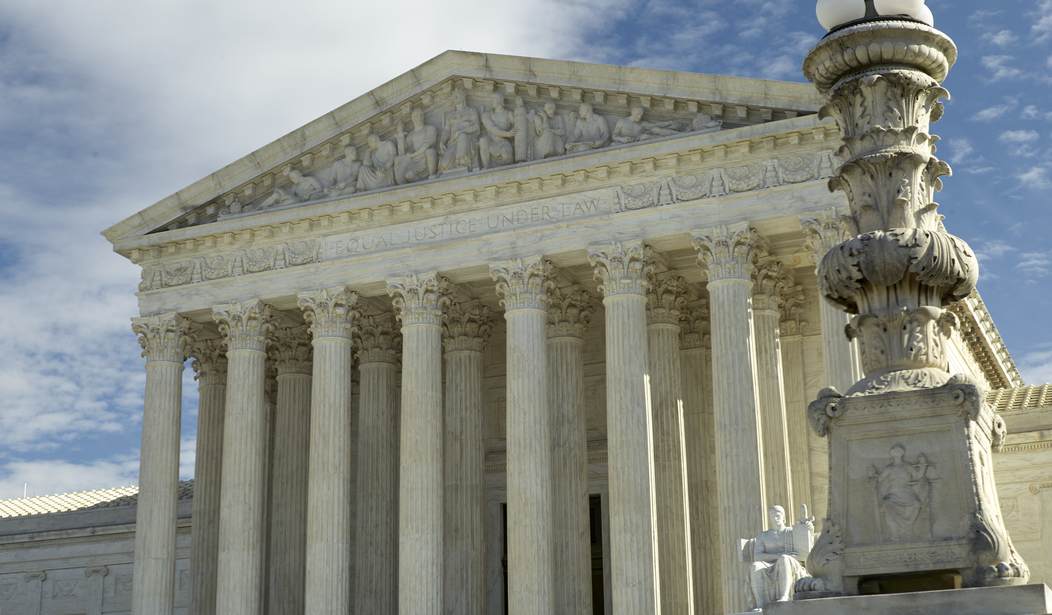Top News
Supreme Court Releases New Code of Conduct

You probably recall all of the stories about Justice Clarence Thomas having a wealthy friend and the ones about Justice Alito’s luxury fishing vacation. All of this was pretty clearly part of the left’s very partisan attempt to make the Supreme Court less popular so they can try to push through court packing, term limits or some other remedy for the fact that their side isn’t in power. But today the Court decided to issue a new ethics code designed to make it more explicit what is expected of Justices.
The court issued a 14-page document that included five canons of conduct on issues such as when justices should recuse themselves and what kind of outside activities they can engage in.
“The undersigned justices are promulgating this Code of Conduct to set out succinctly and gather in one place the ethics rules and principles that guide the conduct of the Members of the Court,” the justices said in an attached statement. All nine justices signed the statement.
Most of the rules outlined in the code are not themselves new, the statement said, but the lack of a published code “has led in recent years to the misunderstanding that the justices of this court, unlike all other jurists in this country, regard themselves as unrestricted by any ethics rules.”
The document doesn’t place any new restrictions on gifts or travel but some overserves said it was a positive step.
The code, laid out over nine pages, does not place specific restrictions on gifts, travel or real estate deals. But it does caution the justices that they should not take part in outside activities that “detract from the dignity of the justice’s office,” “interfere with the performance of the justice’s official duties,” “reflect adversely on the justice’s impartiality” or “lead to frequent disqualification.”…
“This is a small but significant step in the right direction,” said Amanda Frost, a law professor at the University of Virginia. But she said she was troubled by the court’s failure to acknowledge past transgressions and the lack of a mechanism to enforce the new restrictions.
Daniel Epps, a law professor at Washington University in St. Louis, said the new code reflected, if nothing else, a recognition that the court had to act. “It’s good that they did this,” he said. “It’s good that they feel some obligation to respond to public criticism and act like they care.”
The new document limits the Justices from speaking at any event to promote a product or service, though promotion of the Justices’ own biographies are excluded from those restrictions.
Naturally, the critics are not satisfied. They say the new code, like the old one, seems to lack any specific means of enforcement.
Sen. Sheldon Whitehouse, D-R.I., one of the loudest voices complaining about the court’s ethical shortcomings, was among several leading Democrats who mixed praise for the court with a call to do more.
“This is a long-overdue step by the justices, but a code of ethics is not binding unless there is a mechanism to investigate possible violations and enforce the rules. The honor system has not worked for members of the Roberts Court,” Whitehouse said.
Slate’s Dahlia Lithwick comes to the same conclusion.
…the new/old rules are not precisely binding on the justices. That’s because the old rules, like the new ones, lack any sort of enforcement mechanism. So if the old rules were advisory principles, to which the old justices could look for guidance in deciding whether or not to adhere to them, so too the new rules, which are binding, will mainly serve as guidance to which the justices may newly look for guidance…
Because there is no mechanism by which rule-breaking can be investigated, or adjudicated, the new code serves largely as what one can only describe as a compendium of old whines in new bottles. Come for the whining about bodily attacks on jurists, stay for the whining about how they need book revenue. If all of this material sounds extremely familiar, that’s because the substance of it is all stuff other judges have been doing for years, as the justices have continued to explain on repeat why they can only try to be bound by as much of it as they choose.
There may be something to these complaints after all but I have no doubt that the motive for raising them now has everything to do with whose ox is being gored and who stands to gain from tearing down the current court.
Read the full article here


















